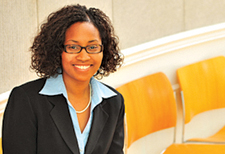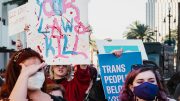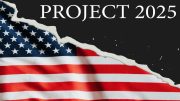By: Chuck Colbert/TRT Reporter—
BOSTON, Mass.—Earlier this summer marked the 50th anniversary of the Civil Rights Act of 1964, which President Lyndon B. Johnson signed into law July 2 of that year. The landmark legislation banned discrimination based on race, color, religion, sex, or national origin. The law also ended racial segregation in public places and banned employment discrimination.
“The Civil Rights Act of 1964 is responsible for eradicating much of the discrimination that minorities have faced in almost every walk of life including employment, public education, and public accommodations like restaurants and theaters,” among others, said Franita Tolson, a law professor at Florida State University (FSU).“Its 50th anniversary invites us to revisit not only its success, but also the continued need for the act to ensure that the most vulnerable members of society continue to have access to the American dream.” [pullquote]“The Civil Rights Act of 1964 is responsible for eradicating much of the discrimination that minorities have faced in almost every walk of life including employment, public education, and public accommodations like restaurants and theaters,” among others, said Franita Tolson, a law professor at Florida State University (FSU).[/pullquote]
Tolson is the Betty T. Ferguson Professor of Voting Rights at FSU’s law school. Her research, writing and teaching focus on election law, constitutional law and employment discrimination. She is a 2005 graduate of the University of Chicago Law School where she was a member of the University of Chicago Law Review and won the Thomas Mulroy Prize for Oral Advocacy in the Hinton Moot Court Competition.
That protections based on sexual orientation and gender identity are not included in the Civil Rights Act of 1964 is not lost on Tolson, nor is the omission lost on a group of LGBT activists and faith leaders, who marked the 50th anniversary with a candlelit event at the Martin Luther King, Jr., Memorial, located in Washington, D.C. in late June.
In fact, the LGBT Civil Rights Vigil, as organizers of the event dubbed it, served as the official launch of a nationwide initiative for what a coalition of grassroots activists are naming a “new campaign for full LGBT equality.”
The theme of the candlelit vigil was “Add 4 Words,” which is a call for adding the language of “sexual orientation” and “gender identity” to the federal legislation. Already, the effort has garnered support from more than 245 organizations in 44 states, including any number of statewide LGBT equality groups and individuals.
The overarching goal for the organizing effort is to get the LGBT caucus in Congress to file a bill that would add orientation and identity protections to existing civil rights laws,all at once.
The all-in-one approach differs from the Human Rights Campaign’s push for the Employment Non-Discrimination Act (ENDA), which would only offer protections in employment and not more broadly to include public accommodations and facilities, credit, education, federally funded programs or activities, marriage equality, and employment in the armed forces, among others.
“Seeking full equality is not just a legislative agenda, but is the antidote to the vast harm LGBT Americans endure under discrimination, which causes children to commit suicide, and keeps 53 percent of LGBT workers in the closet, living in daily fear,” said Todd Fernandez, campaign manager for The Equality Pledge Network, which is spearheading the campaign effort. [pullquote]“Seeking full equality is not just a legislative agenda, but is the antidote to the vast harm LGBT Americans endure under discrimination, which causes children to commit suicide, and keeps 53 percent of LGBT workers in the closet, living in daily fear,” said Todd Fernandez, campaign manager for The Equality Pledge Network, which is spearheading the campaign effort.[/pullquote]
A lawyer and human rights activist, Fernandez, formerly of Boston, is based in New York City. He also serves as executive director and board chairman of LGBTequalitynow.org, a recently formed group to facilitate the pledge network.
A more powerful goal
During a recent interview, Fernandez, who served in the administration of former Massachusetts Governor Bill Weld, spoke about the organizing efforts behind the campaign and the necessity of securing comprehensive civil rights protections for LGBT people on Capitol Hill.
“The whole point of coming up with a much more powerful goal,” he said, is to address the lack of progress in the U.S. Congress to enact legislation “even as simple as ENDA when 90 percent of Americans think we have” employment non-discrimination. [pullquote]“It is a sign of [the LGBT community’s] strategic and political weakness” that ENDA has failed to pass, Fernandez, explained, “and so the hope is that with the pledge of support from 245 groups, we come up with a principled goal that gives us equality” at the same time “we speak to our own people with a voice of dignity that will inspire people to take action and build the mass movement.”[/pullquote]
“It is a sign of [the LGBT community’s] strategic and political weakness” that ENDA has failed to pass, Fernandez,
explained, “and so the hope is that with the pledge of support from 245 groups, we come up with a principled goal that gives us equality” at the same time “we speak to our own people with a voice of dignity that will inspire people to take action and build the mass movement.”
Fernandez is well aware of the obstacles to full LGBT equality. While ENDA passed the U.S. Senate November 7, 2013, by a 64-32 vote, marking the first time that legislative body approved federal civil rights legislation banning anti-LGBT employment bias, House Speaker John Boehner (R-Ohio) has said repeatedly that he would not bring ENDA to a vote, claiming the legislation is unnecessary and would lead to frivolous litigation. In addition, a growing number of national and statewide LGBT organizations are coming out against the proposed ENDA, saying that while it bans workplace discrimination on the basis of sexual orientation and gender identity, the federal law also would allow religious organizations to discriminate against LGBT people even in non-ministerial or pastoral capacities.
CURRENTLY, 21 states, the District of Columbia, and Puerto Rico have laws barring workplace discrimination based on
sexual orientation, with 17 states and the District also barring discrimination based on gender identity.
A corrective to legislative resistance, Fernandez said, “is building a movement in the states relying on grassroots activists. What we are trying to do is instill in them a sense of entitlement to full LGBT equality.”
For her part, Tolson sees the wisdom of a state-by-state approach, much along the lines of marriage equality advocates, who have brought same-sex marriage to 19 states and the District of Columbia.
“Same-sex marriage has had success,” she said over the telephone, because the effort “was all about pushing the states to do more.”
A state-by-state strategy for LGBT protections “is a good idea,” Tolson added. “It’s the same blue-print that same-sex marriage advocates used.”
Given the current GOP control of the House, she said, securing comprehensive protections—even ENDA’s passage—“is probably not going to happen.”
Meanwhile, for the remainder of 2014, Equality Pledge campaign goals include increasing support up to 500 organizations, establishing state leads in all 50 states, and conducting an equality tracking system to document support among lawmakers.
Highlighting ‘minority stress’ impacts
Another goal is undertaking a public awareness campaign to highlight societal discrimination and its effect on “minority stress,” which manifests as suicide and mental health disparities, including depression, anxiety, low self-esteem, and family rejection, among others. [pullquote]Meyer studies public health issues related to minority health, specifically research on stress and illness in minority populations, such as LGBT people, including the relationship of minority status, minority identity, prejudice and discrimination, and mental health outcomes in sexual minorities and the intersection of minority stressors related to sexual orientation, race/ethnicity and gender.[/pullquote]
The public awareness campaign draws upon the work of Ilan H. Meyer, Ph.D., a psychiatric epidemiologist, author, professor, and a senior scholar for public policy and sexual orientation law at the Williams Institute of UCLA.
Meyer studies public health issues related to minority health, specifically research on stress and illness in minority populations, such as LGBT people, including the relationship of minority status, minority identity, prejudice and discrimination, and mental health outcomes in sexual minorities and the intersection of minority stressors related to sexual orientation, race/ethnicity and gender.
Myer has developed a model of “minority stress” which helps to describe the relationship of social stressors and mental disorders and helps to explain LGBT health disparities.
Altogether, Fernandez said, the equality-pledge campaign approach relies on two fundamental principles: a human rights imperative and a public health emergency.
“It is the primary duty of the government to protect” its citizens, he said, “from the harms of discrimination. That’s what human rights and civil rights are all about.”
The LGBT community is indeed facing a public health crisis, Fernandez added.
“What other minority group has [youth] suicide by its members just because of their belonging to that group?” he asked.
For more information on the campaign, visit equalitypledgenetwork.weebly.com.
Copyright ©2014 Chuck Colbert. All Rights Reserved.










To the Editor,
Thank you for the article “LGBTs Push To Expand Civil Rights Act.” Starting in 2009, veterans of the movement with eQualityGiving.org crafted an omnibus civil rights bill to change the movement strategy, knowing that it was vital that we included gender identity, leaving no one behind, and that we sought full federal equality as a statement of our dignity and entitlement.
I had just returned from a year in Africa in 2008, where I had gone back in the closet in South Africa and later lived in abject fear in Ethiopia. That experience reconnected me with the trauma of my childhood, and of the torment and fear I experienced that I had long forgotten after decades of South End safety and liberation. It revealed to me the true pain and suffering still lurking in my being, which I finally discovered had a name: Minority Stress.
It took five years of constant agitating, demonstrations at HRC and NGLTF events, a 37 day vigil outside of Senate-candidate Gillibrand’s office, the Grand-Central Die-In, a major civil disobedience in NYC, the largest in our movement’s history, and a lone-activist, Richard Noble, walking on foot across America. We challenged Rep. Barney Frank and the NAACP to step up, only to have the system denigrate and attack our efforts, and the LGBT media largely ignore us. It has been a long, stressful and painful journey.
But happily today in 2014, the movement strategy has clearly shifted to filing a comprehensive bill next Congress. So now, we need all the states with full equality to step up. It is time to go back and help our LGBT family in Mississippi, Georgia, Missouri, and in the almost 30 states that have no LGBT protections where state action is a pipe dream and federal action is the only hope. We also need to eradicate the U.S. source of the religious anti-gay crusade infecting the world from Russia to the Gambia.
We are an oppressed people in this world, without safe haven, where our soul’s journey is a torment. Our children are committing suicide and our adults struggle with deep psychological wounds from being rejected by society. This will change. But we must each step up 100% for one more big push to outlaw SOGI discrimination in America – and then the world.
Please take The Pledge for Full LGBT Equality (www.LGBTequaltyNOW.org) and join the grassroots campaign and over 250 groups demanding justice. All are welcomed. Equality Now!
Todd “Tif” Fernandez, Campaign Manager, The Equality Pledge Network.